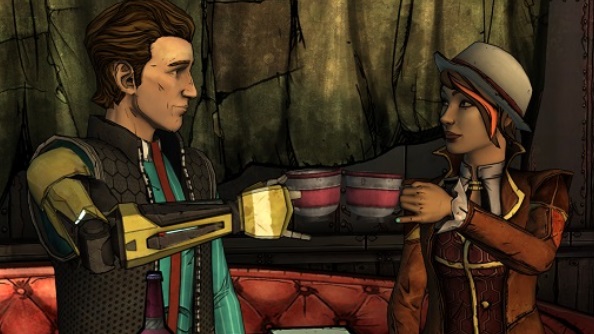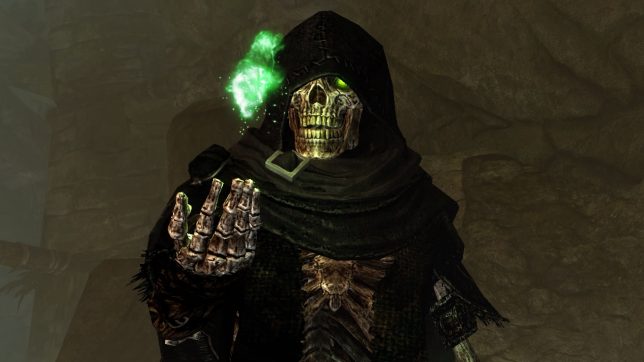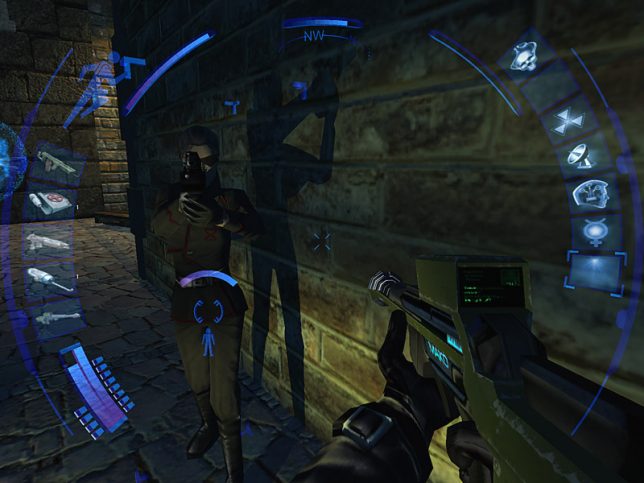Dive deep into any given gaming discussion board, and aside from the crushing aura of hopelessness with just a hint of cheese, you’re bound to experience a common argument: “Games today are dumbed down.”
It’s a topic hotly debated among many, from gaming’s elite all the way to gaming’s meh. To sum it up, there are some who believe that simplified, streamlined controls and systems in a fair amount of games (usually when compared to their predecessors) mean that developers are turning their backs on the, in the words of a few, “hardcore” players in favor of a more casual market.
Some popular examples cited in this argument include titles like The Elder Scrolls V: Skyrim and Fallout 4, along with other lesser known and lesser Bethesda-y games like Deus Ex: Invisible War.
Now, I’m not here to talk about those games, specifically. I’m just here to talk about the idea of “dumbed down” games, as well as to present my argument for why they’re important.
I grew up in the ’90s. That statement alone should send a few eyes on an epic journey upward, but I’m merely pointing that out to provide context. Unlike many in my insufferable age group, I never liked games whose main draw was their difficulty. I passed over games like Mega Man and Final Fantasy—at least at the time—in favor of the notably less punishing Super Mario Bros. and…honestly that was kind of all I played on the NES. Look, it was a Wild West of games and this cowpoke didn’t wanna mosey out of the ranch.
I was making a point here, wasn’t I? Yes, that point is that I—and I assume many others like me—didn’t have many opportunities to really get into gaming at first due to my preferences. Casual, less intensive games are an excellent entry point for new players, and for many, they’re more than that. If I hadn’t had games like Super Mario Bros. and, eventually, Donkey Kong Country, Mario Kart 64, and even more recent titles like Tales from the Borderlands, I might not be as enthusiastic as I am about gaming today. I might not have even stayed with it.

“Dumbed down” games, as some insist on calling them, bring in new players, and their continuing existence keeps those players interested. Every good medium needs a nice big audience, and the more diverse, the better. Aside from people of different gender, racial, religious, etc. backgrounds (which are extremely important, but a different topic entirely), different skill levels and playstyles among players encourage creativity among developers. Without a diverse audience, game developers very likely wouldn’t have innovated as much as they did over the years, since they wouldn’t have to worry about bringing in new players.
I imagine there are some of you who agree with that sentiment but are also about to bring up another point. Diversity is great, you say, but certain features and mechanics need to stay consistent across sequels. Streamlining and simplifying bits that are already established only serve to separate the game from its predecessor. How’s that? Did my generic straw man argument successfully represent anyone actually reading? Eh, I’m sure it’s fine. Just let me argue with myself.

That’s an excellent point. After all, if you change too much in a sequel, then what even makes it a sequel anymore rather than a spinoff or just a separate, standalone title? To a certain point, I agree. The problem is, I have no idea where that point is.
Look at Fallout 3. While there are some incredibly vocal dissenters, I’d argue that most agree it deserves its place in the Fallout franchise. However, aside from its title, its setting, and Ron Perlman, it shares very little with Fallout 2.
But it brought Fallout back from the dead like a rich necromancer who knows how to code.

That right there draws an excellent parallel to the argument I’ve been making in favor of so-called “dumbed down” games. Fallout 3 is far more accessible than its predecessors, and as a result, the franchise now has more fans than ever. Entirely separate generations of players find common ground in their love of this post-apocalyptic playground, and if some niche mechanics that a few loud people liked had to be sacrificed to pull it off, I’d say that’s a decent trade-off.
You see the same phenomenon in other franchises like Final Fantasy (with games like XII and XV), Mass Effect (don’t even get me started on Mass Effect 3 and Andromeda, both of which are my babies whom I will protect with my tiny little life), and Deus Ex (every game since the original draws at least a few gallons of vitriol). But in each of those cases, where the divergence in any given game may have lost some old fans, the amount of new players they brought in more than made up for it in sheer numbers. These new players are drawn to the more accessible (to them) mechanics, story, presentation, etc. Just like me with my old NES, they finally have an entry point.
I was supposed to have made a point by now, and hopefully that was it. So let me just quickly drive it home. Simplification is an inevitability when it comes to games, especially as franchises continue on. I’m not saying let everything slide. After all, communication between developers and players is incredibly important. All I ask is that you pick your battles. Let the new players in. Let them enjoy the series you’ve been playing for so long. Seeing somebody else as happy as you were when you first discovered your favorite game has got to be worth the loss of that weird and slightly creepy persuasion minigame in Oblivion, right?

